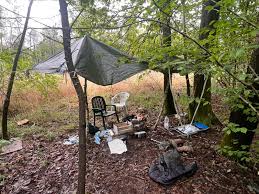Delay in Bulgaria’s free antibiotics plan for children sparks resistance fears

Sofia: Bulgaria has failed to fulfil its promise to provide a large number of free antibiotics for children up to the age of seven, with the state managing to contract only a single manufacturer for one medicinal product. Widespread use of a single medicine could increase antibiotic resistance, experts warn.
Earlier this year, the National Healthcare Fund (NHF) allocated a budget to make medicines for 117 diagnoses of acute infectious diseases available at no cost to the youngest children from July 1.
Despite assurances from leading MPs in the ruling coalition, the state fund failed to secure the medicines at the start of July, as pharmaceutical companies showed little interest in signing supply contracts for these products.
According to paediatricians, GPs, hospital doctors, and pharmacists Euractiv has spoken to, by the end of July, only a generic form of azithromycin, in two doses, produced by a Bulgarian pharmaceutical company, was being reimbursed.
“The state’s decision to offer free antibiotics was populist,” commented Dr Margarita Sharkova, a paediatrician and general practitioner with one of the largest practices in the capital Sofia, speaking to Euractiv.
“The antibiotic currently available for free is not even a first-line treatment. But even if more antibiotics are eventually made available free of charge, the money could have been spent far more wisely, for example, on prevention. Free varicella vaccines could have been provided instead,” Sharkova said.
According to her, pharmaceutical companies’ reluctance to sign contracts with the state is entirely understandable, as the state simply does not pay well.
“We all know how the Health Fund pays for medicines,” Dr Sharkova noted.
Previous Euractiv in-depth reporting on the issue has highlighted the substantial discounts Bulgaria demands from pharmaceutical companies in a bid to cut costs. Private firms find it much more advantageous to sell their products through the pharmacy network rather than sign contracts with the state, which involves navigating excessive bureaucracy to supply cheaper antibiotics.
In informal conversations, hospital doctors expressed concern to Euractiv that offering a limited number of antibiotics without charge could lead to an increase in antimicrobial resistance (AMR).
The fear is that in poorer and smaller Bulgarian towns, as well as in deprived Roma neighbourhoods in larger cities, economic necessity will lead to widespread use of the only available free option. In response to a Euractiv question, Dr Sharkova also acknowledged this possibility.
At the start of the year, the Bulgarian parliament allocated an initial sum of €5 million to the NHF to launch the programme. It only became clear in July that the mechanism would not start on time, and that the state would cover only the cheapest available product in each drug category. This means that parents will still have to pay out of pocket for newer generations of antibiotics.
In early July, Health Minister Sylvi Kirilov announced that he had done everything possible to help accelerate the procedure for approving publicly funded medicines.
Similarly, Sofia has also failed to use the funds allocated in 2025 for biomarker diagnostics in cancer care, as it has not been able to approve the necessary procedures for utilising the financing.
The Health Ministry stated that all marketing authorisation holders had been invited to submit applications for the inclusion of medicinal products in the Positive Drug List for reimbursement.




